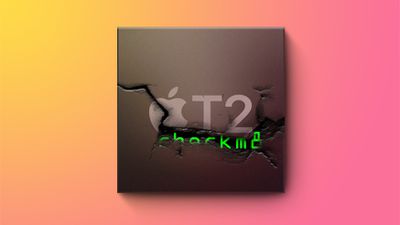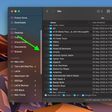Intel Macs that use Apple's T2 Security Chip are vulnerable to an exploit that could allow a hacker to circumvent disk encryption, firmware passwords and the whole T2 security verification chain, according to team of software jailbreakers.

Apple's custom-silicon T2 co-processor is present in newer Macs and handles encrypted storage and secure boot capabilities, as well as several other controller features. In a blog post, however, security researcher Niels Hofmans notes that because the chip is based on an A10 processor it's vulnerable to the same checkm8 exploit that is used to jailbreak iOS devices.
This vulnerability is reportedly able to hijack the boot process of the T2's SepOS operating system to gain access to the hardware. Normally the T2 chip exits with a fatal error if it is in Device Firmware Update (DFU) mode and it detects a decryption call, but by using another vulnerability developed by team Pangu, Hofmans claims it is possible for a hacker to circumvent this check and gain access to the T2 chip.
Once access is gained, the hacker has full root access and kernel execution privileges, although they can't directly decrypt files stored using FileVault 2 encryption. However, because the T2 chip manages keyboard access, the hacker could inject a keylogger and steal the password used for decryption.
According to Hofmans, the exploit can also bypass the remote device locking function (Activation Lock) that's used by services like MDM and FindMy. A firmware password won't help prevent this either because it requires keyboard access, which requires the T2 chip to run first.
For security reasons, SepOS is stored in the T2 chip’s read-only memory (ROM), but this also prevents the exploit from being patched by Apple with a software update. On the plus side, however, it also means the vulnerability isn't persistent, so it requires a "hardware insert or other attached component such as a malicious USB-C cable" to work.
Hofmans says he has reached out to Apple about the exploit but is still awaiting a response. In the meantime, average users can protect themselves by keeping their machines physically secure and by avoiding plugging in untrusted USB-C cables and devices.
Lastly, the researcher notes that upcoming Apple Silicon Macs use a different boot system, so it's possible that they won't be impacted by the vulnerability, although this is still being actively investigated.
Update: The original report incorrectly referred to Niels Hofmans as the cybersecurity expert who carried out the research. Hofmans is in fact an industry consultant who provided impact analysis of the T2 and checkm8. This has now been corrected.






















